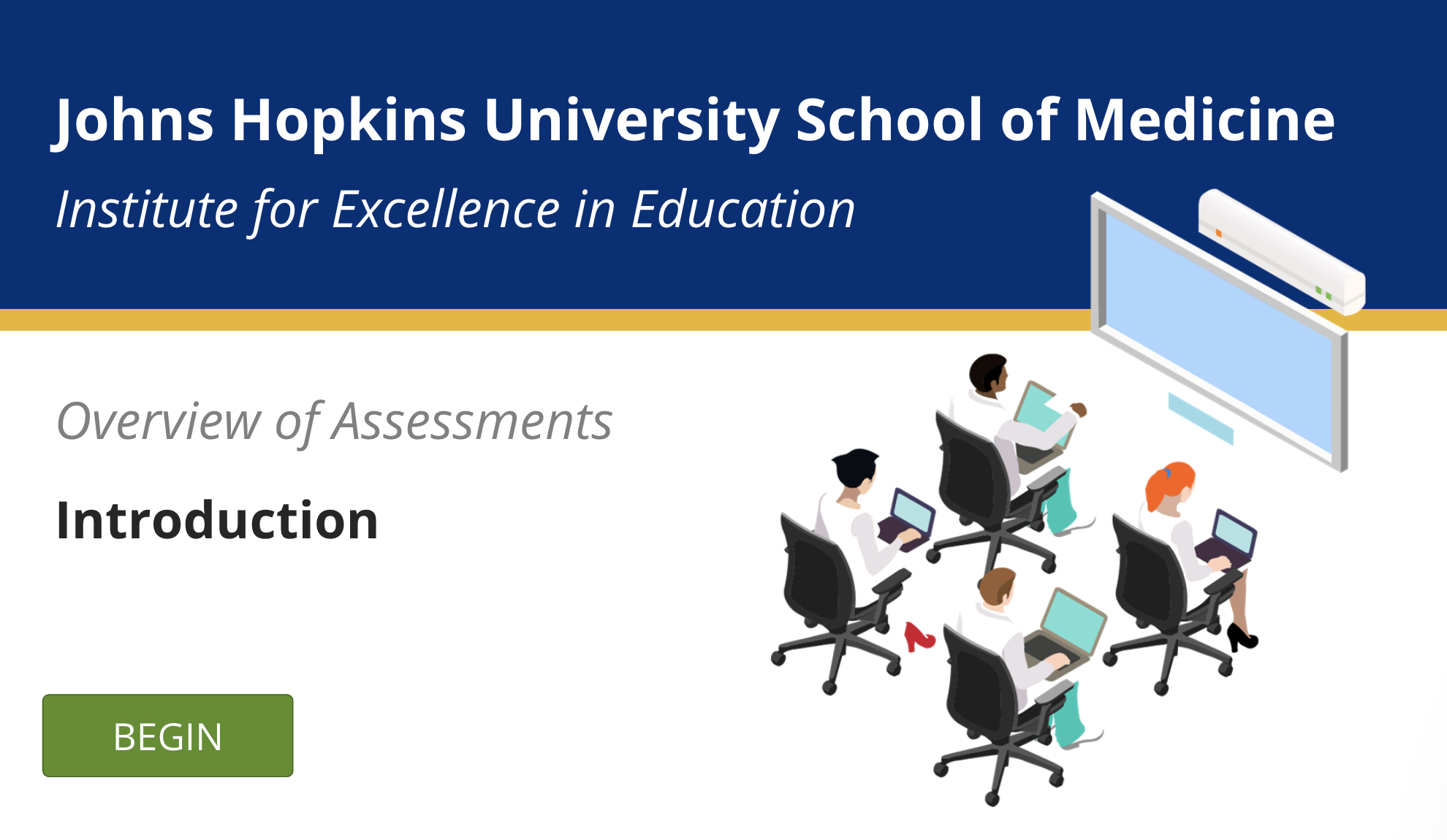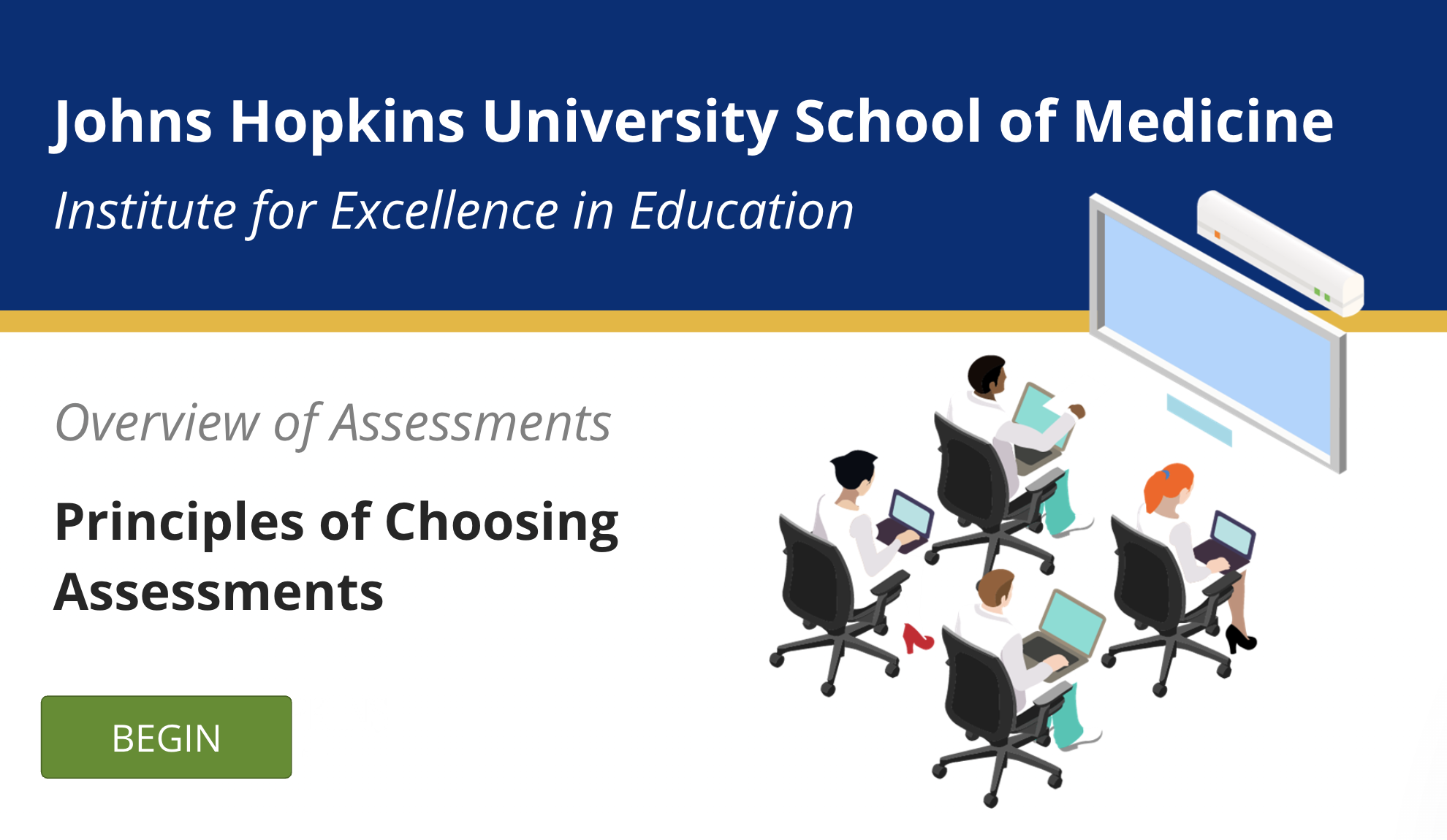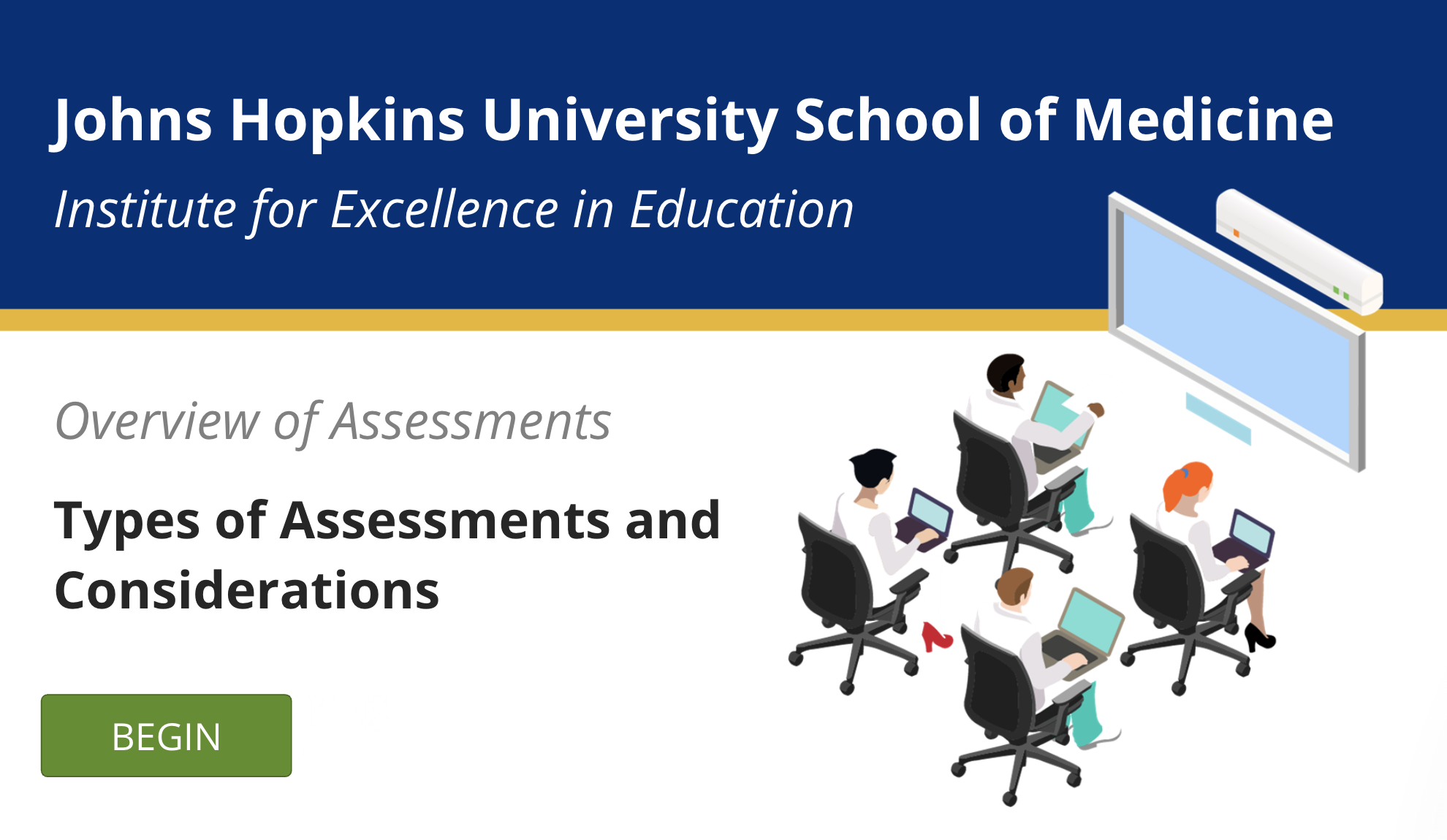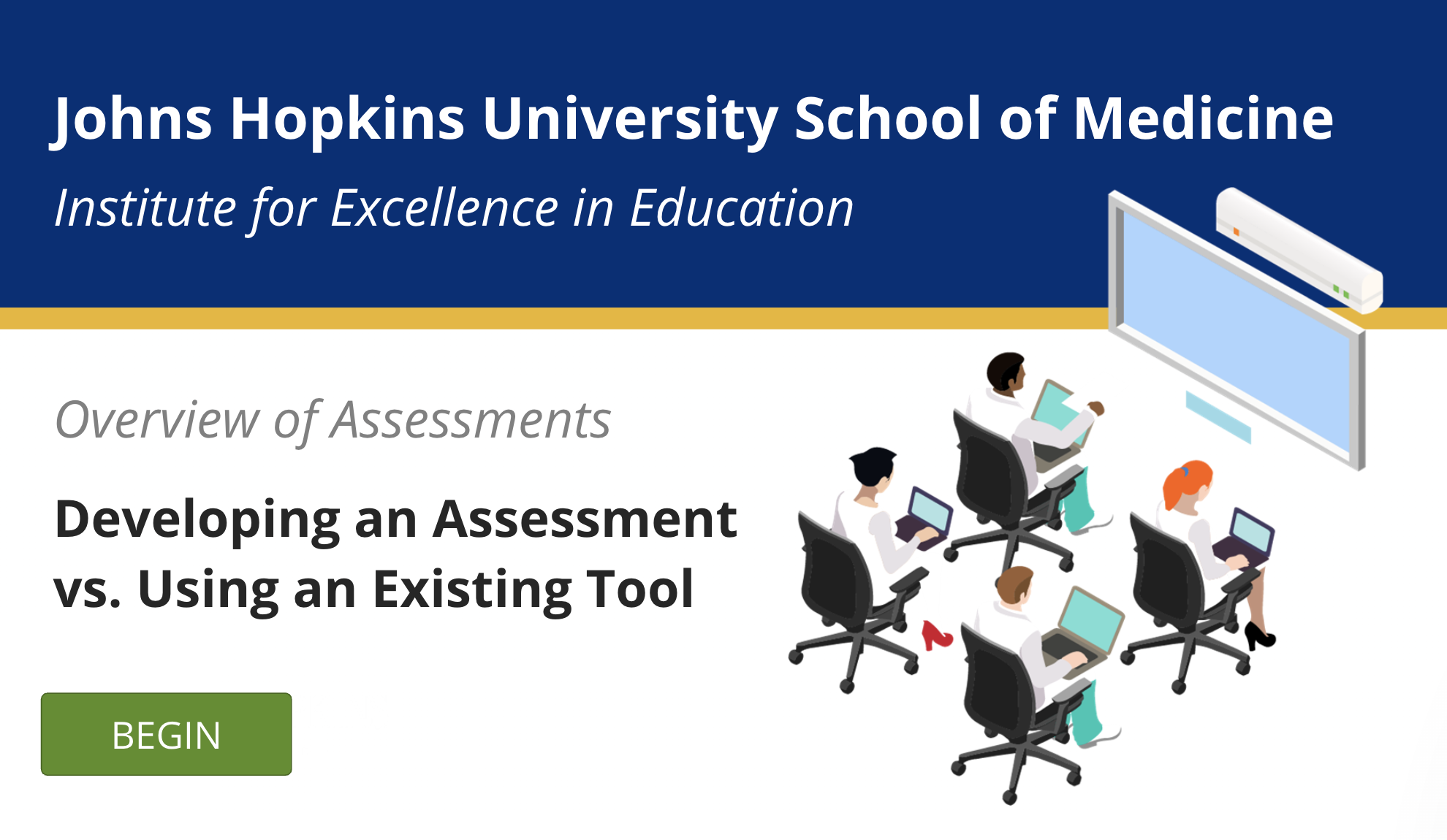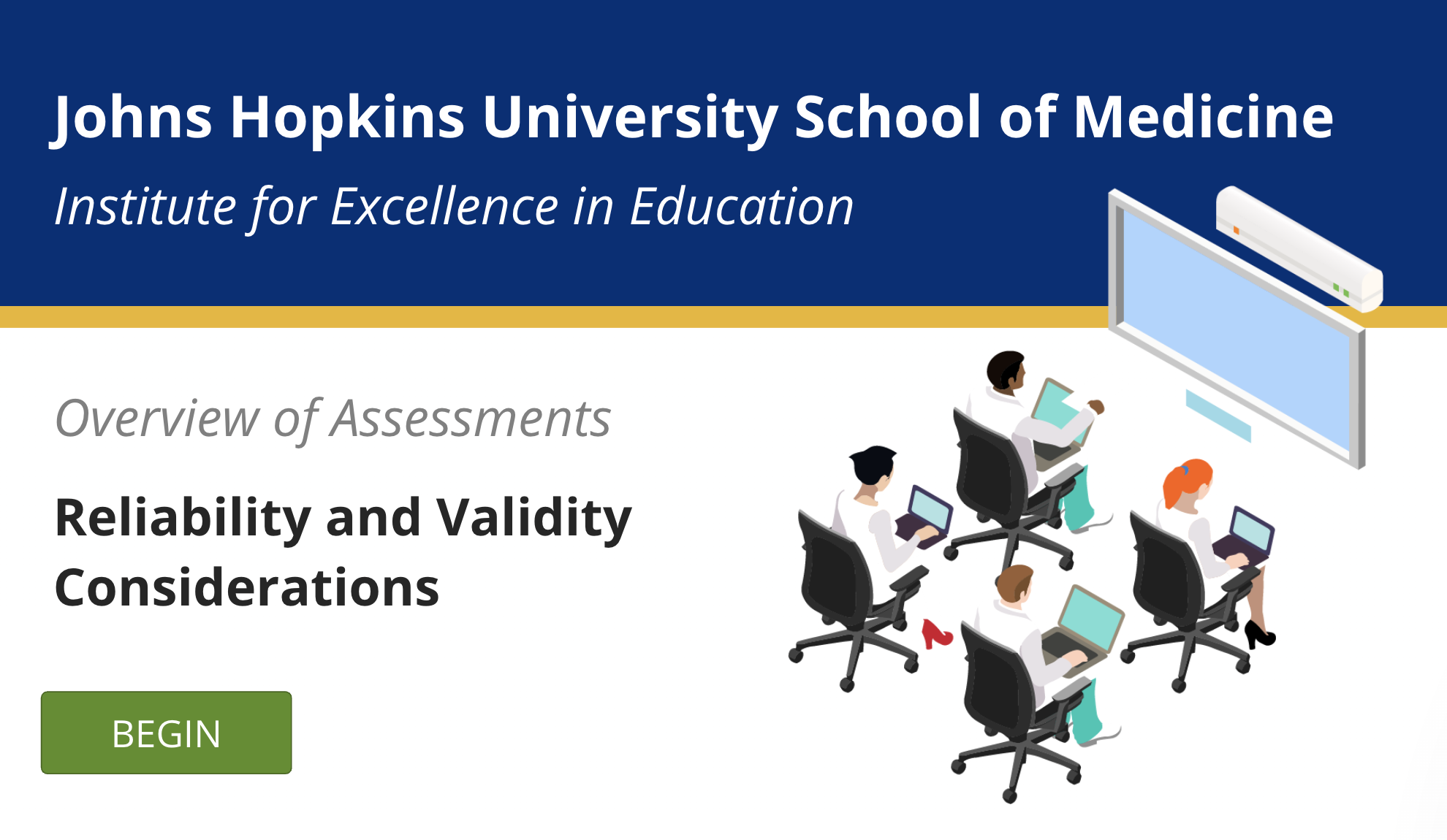Comments? Contact IEE.
1. Objectives
- Define learner assessment and differentiate from program assessment
- Identify the most appropriate assessment types to use in different contexts (given learning objectives, learner level, and domain of interest)
- List the pros and cons of different assessment types
- Decide whether developing a custom assessment tool is needed in a given situation or whether an existing tool can be used or adapted to assess the learner
- Explain different types of reliability and validity considerations in assessment tools
2. Preparation in Advance
- What are the learning objectives for my students? Have I ensured they are SMART (specific, measurable, achievable, relevant, time-bound)?
- What domains do these objectives fall under (knowledge, skills, attitudes)?
- What is the current level of mastery of my students?
- What resources are available to me to develop assessment tools (money, time, trained raters, etc.)?
- Are there any assessment tools that already exist that measure what I need to measure?
- What is the impact of the assessment result on your learner (i.e. low stakes or high stakes)?
3. The Module
4. Application of the Module
Search literature, the MedEd portal, and other resources to see if any tools already exist that may meet your needs.
5. Next Steps and Coaching
Reach out to a data expert for help determining the validity and reliability of your assessment (At Johns Hopkins, you may consider contacting the Office of Assessment and Evaluation to discuss your assessment tool https://www.hopkinsmedicine.org/som/offices/assessment_evaluation/)
6. Summary Points
- Introduction to Assessment
- Principles of Choosing Assessments
- Types of Assessments and Considerations
- Developing an Assessment vs. Using an Existing Tool
- Reliability and Validity Considerations
-
The type of assessment tool that is appropriate depends on what you are trying to measure, the stakes of the assessment, and learner level.
-
Stakes of examination, feasibility, cost, reliability and validity are all considerations when implementing an assessment tool.
-
Choosing an assessment tool should begin with searching for available tools and deciding if they are sufficiently reliable and valid for your population.
About the Authors
 Danelle Cayea, M.D., M.S.
Danelle Cayea, M.D., M.S.
Vice Chair for Education, Department of Medicine
Associate Professor of Medicine

